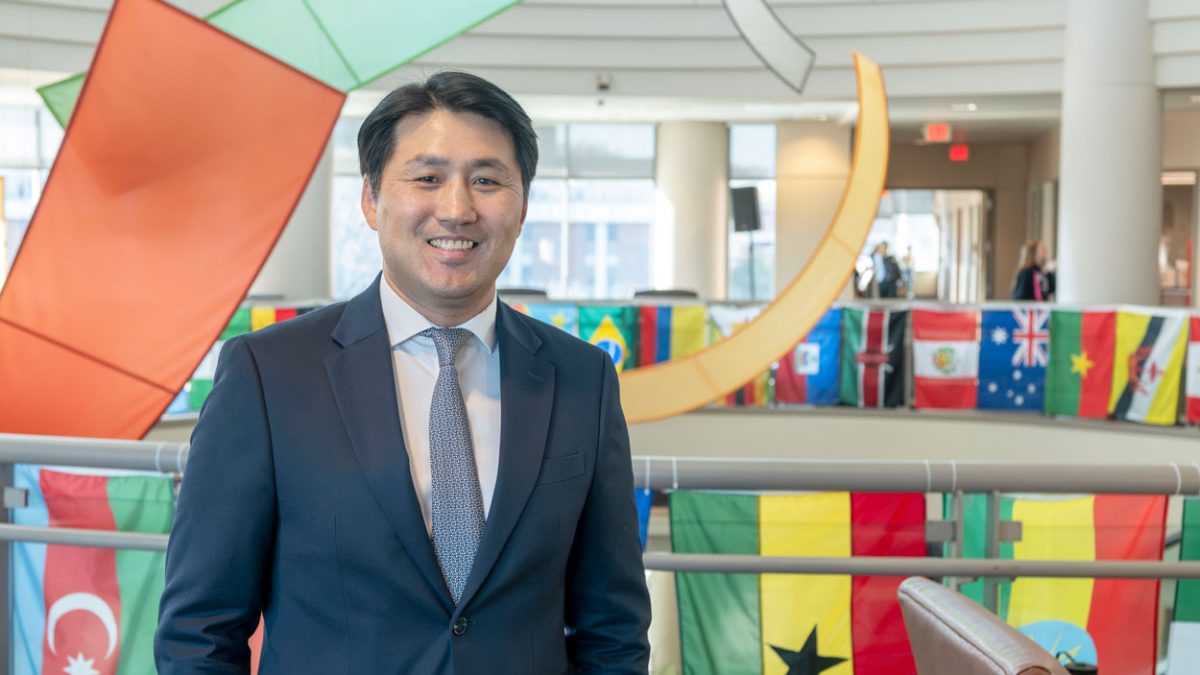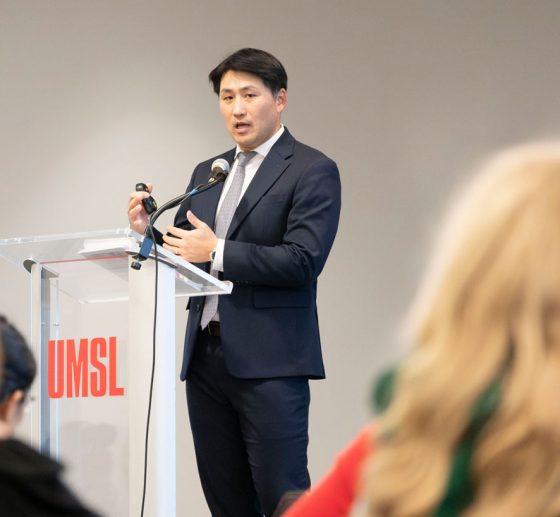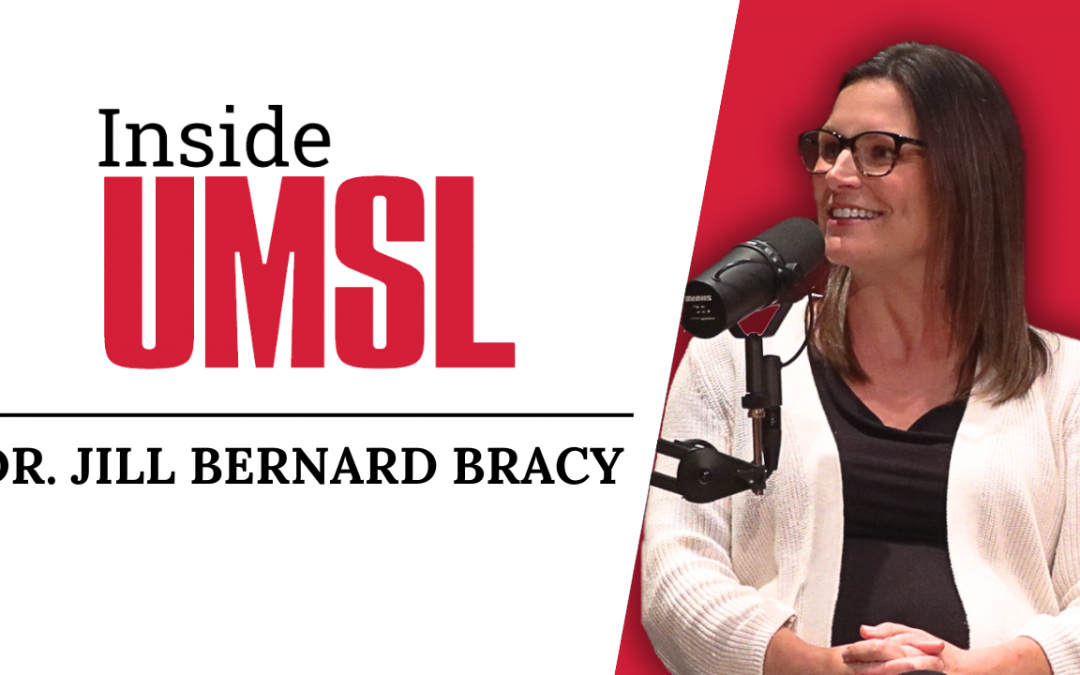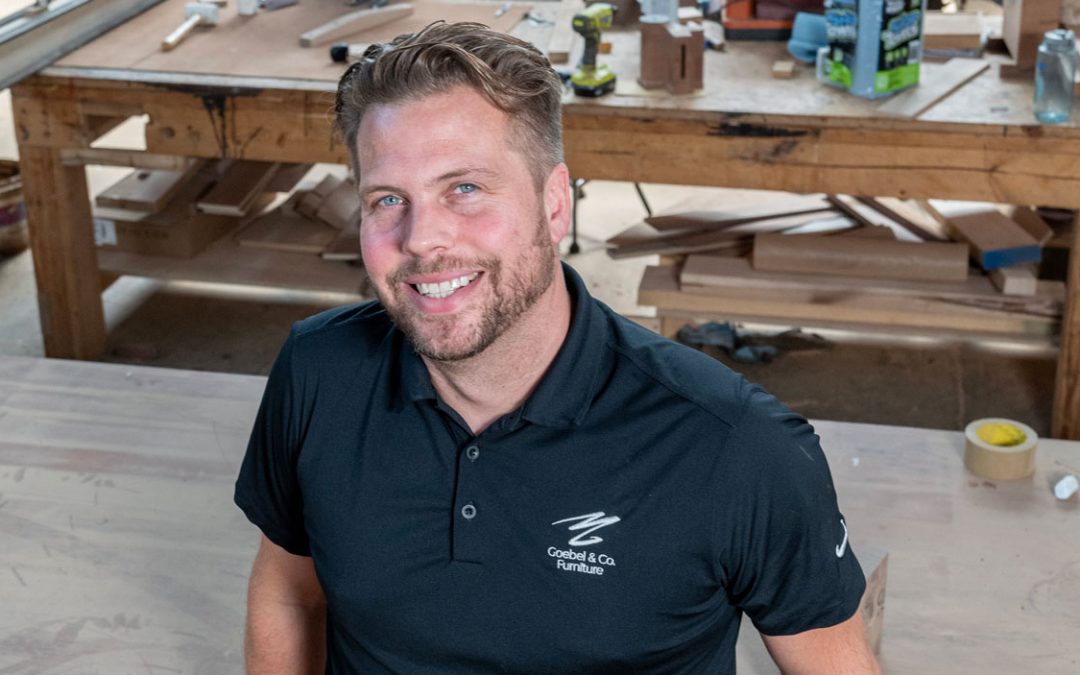
Seyoung Baik will earn his PhD from the College of Nursing this semester. His research examined how non-native speaking nurses respond to disruptive behavior from their colleagues. (Photo by Derik Holtmann)
Seyoung Baik has worked as a nurse in a lot of different environments, from his native South Korea, where he earned his BSN from Woosuk University in 2003, to Australia and New Zealand to the United States, where he currently is a PhD student in the College of Nursing at the University of Missouri–St. Louis.
As an immigrant himself, he often found himself thinking about how non-native speaking nurses might respond differently to disruptive behavior from their colleagues compared to nurses who speak English as their primary language. According to the American Medical Association, disruptive clinician behavior refers to “personal conduct, whether verbal or physical, that negatively affects or potentially may affect patient care including, but not limited to, conduct that interferes with one’s ability to work with the other members of the health care team.”
“We have disruptive behavior in workplaces a lot, but it might be different for non-native speaking nurses because of their different backgrounds, like language barriers or educational backgrounds,” he said.
That question would eventually become the basis of Baik’s research in the Nursing PhD program at UMSL. Last week, he presented his dissertation, “Disruptive clinician behavior: a qualitative descriptive study of non-native English-speaking nurses” to students, faculty and staff in the college during its annual Fall Research Day.
Baik’s research, for which he was awarded the 2024 Jeanne O’Grady Memorial Fellowship award, aimed to create a comprehensive description of the experiences of disruptive clinician behavior of non-native English-speaking nurses in the U.S., identify the responses of those nurses toward disruptive clinician behavior and discover the impacts that disruptive clinician behavior had on patient care activities. He said the O’Grady fellowship provided crucial support as he carried out the study.

Baik presented his research at the College of Nursing’s Fall Research Day on Dec. 4. (Photo by Derik Holtmann)
Baik conducted semi-structured interviews with 20 non-native English-speaking nurses who had experienced or witnessed disruptive clinician behavior in their clinical workplaces. He found that non-native English-speaking nurses exhibited a higher susceptibility to disruptive clinician behavior compared to other health care professionals, largely due to differences in culture and language barriers. Nurses who come from diverse cultural backgrounds and do not speak English as their first language frequently take responsibility for disruptive behaviors displayed by clinicians and, due to a lack of trust, don’t believe that their leadership is capable of protecting them from these behaviors.
But Baik also found that non-native English-speaking nurses were both the recipients and perpetrators of these disruptive behaviors. In particular, he was surprised to hear some racist remarks from participants in the interviews, whether through subtle manifestations of bias, focusing on the ethnicity of their co-workers or explicit stereotyping.
Baik hopes the findings of his study can have a tangible impact on the nursing profession, encouraging health care organizations to revise their existing policies in order to include a zero-tolerance stance on disruptive behavior exhibited by clinicians and also offer educational opportunities to help clinicians recognize this behavior in the future. Since he found trust in leadership to be lacking among non-native English-speaking nurses, he also believes these organizations should work to regain that trust by sharing regular updates on the progress they’ve made toward these goals.
“PhD in Nursing students complete a rigorous academic program prior to undertaking their own original research during the dissertation,” said Associate Professor Julie Bertram, who served on Baik’s dissertation committee. “Having worked with Seyoung first in the Introduction to Qualitative Methodologies and Methods course, and later during the dissertation, I was amazed at the transformation I observed in him as a scholar. I attribute his success to his commitment to excellence, openness to feedback and determination. These attributes led to the delivery of an accurate and thorough product.”
With his oral defense completed and commencement quickly approaching, Baik is now focused on his next steps. He is actively looking for a leadership role that will allow him to apply his findings to the nursing field by helping to develop and oversee workplace policies and procedures. He feels the findings of his study are particularly significant in light of projected shortages in the nursing profession – according to the U.S. Chamber of Commerce, 42 out of the 50 U.S. states will likely experience shortages in nursing staff by the year 2030 as Baby Boomers reach retirement age and the need for health care continues to grow. He feels that establishing a safe and productive working environment for non-native English-speaking nurses – who make up a significant portion of the workforce – should be a key priority.
“Non-native English-speaking nurses are not the minority anymore,” Baik says. “They’re becoming an important population in the nursing field, so we have to take care of them, and then we have to develop some policies and procedures to protect them against the discrimination and the racism.”














